SUMMARY
This is AI generated summarization, which may have errors. For context, always refer to the full article.
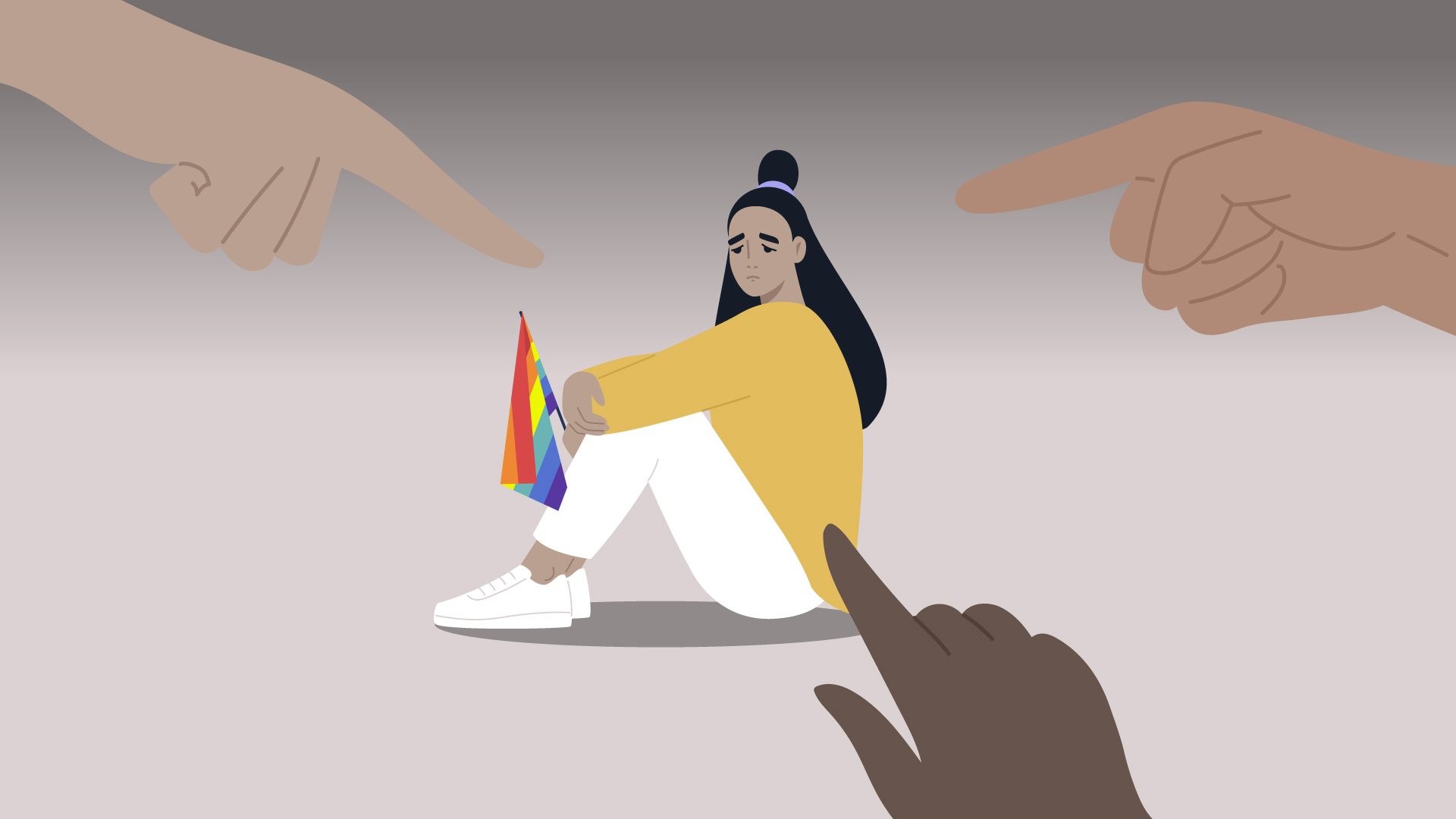
MANILA, Philippines – Imagine receiving constant snide comments or facing rejection by your peers because of your identity. Queer Filipinos continue to face this reality even though the Philippines is regarded as one of the “friendliest” countries for LGBTQ+ people in Asia.
This situation persists as fierce debate continues over the SOGIE (sexual orientation, gender identity, and gender expression) equality bill that has yet to hurdle Congress more than two decades after it was first filed.
And based on the latest pronouncements of lawmakers opposing the equality bill, it will likely remain in the back burner of legislative agenda.
Senate Majority Leader Joel Villanueva recently said he “[doesn’t] see any urgency for that particular measure.” The senator is the son of CIBAC Representative Eddie Villanueva, the founder of the Jesus Is Lord religious group.
Villanueva was also instrumental in reverting the Senate version of the bill to the committee level in February after presenting letters from concerned religious groups who claimed they were not consulted during the technical working group meetings.
However, beyond the political drama lies the lives of LGBTQ+ individuals who seek safer spaces to carry out their everyday tasks as their full selves.
Rappler asked queer social media users to share their personal stories of discrimination and harassment. Here are some of those stories.
‘Kababae mong tao’
Throughout his journey, transgender man Pow Chavez had to go through his fair share of discriminatory and derogatory comments. The former Philippine Idol contestant has been asked to “dress androgynously” and wear make-up in various singing competitions.
He was even excluded from participating as part of a group during a Malaysian singing competition in 2007 due to his gender expression.
“I was really angry. It was devastating. I joined because I [wanted] to show myself to the world. I guess at the back of my head, I was [also] trying to see how people would accept me. But, it’s okay. At least I tried,” he told Rappler in a mix of English and Filipino.
While he saw that Filipinos have become “more tolerant” towards the LGBTQ+ community, Pow still experienced discrimination while driving near Manila City Hall in 2022 when he was contesting with a traffic enforcer on an alleged traffic violation.
“Hindi niya na siguro alam ano sasabihin niya sa akin. [Kaya] sinabi niya ‘Alam mo sayang ka, kababae mong tao. Ang yabang mo.’ So parang [sinabi ko], ‘Excuse me, hindi po ganyan manghuli. Bakit kayo ganyan magsalita? Ang bastos ‘nyo naman,’” he said.
(Probably, he did not know what else to say to me. So he said ‘You’re such a waste for a woman. You’re arrogant.’ Then I said, ‘Excuse me, that’s not how you apprehend someone. Why are you speaking like this? You’re being rude.’)
Pow added that the incident happened twice with the same traffic enforcer.
“The moment that he started speaking that way, I left because I knew that he wasn’t really after me because of my violation. Because if it was a legitimate violation, why would you need to make it personal or say these things [that] doesn’t have to do anything with it,” he said.
The incident left Pow annoyed and insulted, adding that he can’t argue if the enforcer is close-minded on people like him.
“If it was my old self, [iiyak] na ako nun. I learned to manage na lang [and] not to feel small about it, pero labanan ko and let them know na mali yun,” he said.
(If it was my old self, I would have cried then. I learned to just manage and not to feel small about it, but I will fight it and let them know that it’s wrong)
‘Need to be pollinated’
While Pow had to face discrimination on the road, 24-year-old guidance associate Bea (not her real name), who identifies as asexual, had to experience microaggressions from her family.
She adds that the microaggressions were “gradual attacks on [her] confidence and sense of self-worth,” with some referring to her as a “robot.”
“I learned that my sexuality deeply unsettles my family, and they believe something is fundamentally wrong with me biologically or psychologically. This issue remains unresolved and continues to bother me,” Bea said.
Bea decided to draw the line with such acts from her family when she was on vacation with her uncle – who is a part of the LGBTQ+ community – and cousins in 2022.
“We were having a nice conversation until he said something along the lines of ‘you’re like a plant or flower that needs to be pollinated.’ I fell silent and told him that I was offended. Then he went on saying ‘Oh you were offended? You have feelings?’” she said in a mix of English and Filipino.
Bea added that while she understood her uncle was “just trying to have a conversation,” she still found the comments “disgusting.”
The guidance associate also shared that such experiences have made family talks on relationships uncomfortable for her as she feels her family sees her as a “late bloomer or immature.”
“I feel annoyed that I have to go along with their jokes when they tell me that I’ll grow up to be a matandang dalaga (big girl), like it’s the worst thing to ever happen to a woman,” she said.
Bea’s incident is not an isolated case. According to a 2019 report by the Commission on Human Rights, LGBTQ+ children have “varying feelings of safety in the communities they live in” as some have “experienced being insulted, shamed, and judged by people in their community.”
The CHR report also said that many LGBTQ children face psychological and physical abuse from their family members as a “punishment for the child’s SOGIE and as a means to ‘set them straight’ — which is often defined as conformity to gender norms.”
Rejected for being gay
While Pow and Bea had to face disparaging comments, licensed chemical engineer Jeremiah Romero was robbed of an opportunity in 2013 to become an engineer for a brewery of a large beverage company.
He said that things were going well for him at the initial stage after completing his technical exam and encouraging conversations with the company’s human resources (HR) department.
“They then asked me if I [was] married or if I had a girlfriend and I answered no. When they asked me why, I casually told them that it’s because I am gay. I carried myself in a masculine way so my answer shocked them. They said that given my body and voice, they would have never thought that I was a gay guy,” Jeremiah said.
Following his answer, Jeremiah said that HR became “apprehensive” towards him, worrying that “‘less educated’ workers in the plant would neither respect [him] nor follow [his] orders.”
“A few days later, they called me and told me that they [had] given the position to someone else. The HR agent could not say it out loud but I pressed her by asking: ‘If I did not reveal that I was gay, would you have hired me?’ and with utmost hesitance, she said ‘Yes,’” he said.
The incident left Jeremiah with a “crazy mix of emotions” that was dominated by sadness for his father who hoped to see him get hired. It also gave Jeremiah the courage to come out.
“I remember his words to this day: ‘There is nothing wrong with you, anak (son). It is so sad that you have to hide yourself just to work. But let me tell you that there is nothing wrong with you. Sila ang mali (The company was wrong).’ [My father’s] words made me cry and from that night onwards, we became closer to each other,” he said.
Despite Jeremiah’s experience happening a decade ago, job rejections due to one’s SOGIE remain an issue in the Philippines.
According to a 2018 United Nations Development Programme and International Labor Organization report, around 21% of LGBTQ+ respondents in the Philippines said that they were denied a job due to their SOGIE.
It adds that 44% of respondents have seen a job advertisement that excludes their SOGIE in the job requirements.
Even if queer people were able to enter the workforce, around 30% of Filipino respondents said they have been harassed, bullied, or discriminated against due to their gender identity and/or sexual orientation.
Since the incident, Jeremiah currently works as a trade compliance specialist in Canada where he sees that SOGIE is not used as a basis for one’s qualification for the job.
“I’ve met doctors and primary school teachers here who are openly non-binary – neither patients nor parents think any less of them,” he said.
Queer Canadians are protected by the Canadian Human Rights Act, which makes it illegal to discriminate against one’s sexual orientation or gender identity, including the refusal to employ an individual.
Seeking protection
With their own traumatic experiences, Jeremiah, Pow, and Bea agreed that educating people on SOGIE is the best way to end discrimination against queer people, a discussion that should be led by the government.
“Discussing SOGIE in a scientific manner will help people understand that it is just a recognition of normal human behavior. Discussing SOGIE in a humanist manner will show people that it has always existed…throughout history and not a ‘modern invention,’” Jeremiah said.
Both House and Senate versions of the SOGIE equality bill require all government agencies to develop and implement gender-sensitive education and information dissemination.
Bea hopes that such education programs would normalize asexuality through inclusive language and content.
“It’s because we’ve always been taught that we have to be in [a relationship], or else you’ll be lonely…. For LGBTQ+ people, I think the pressure is even more pronounced because we’re already disadvantaged… so not having a relationship could be misconstrued as a consequence of being LGBTQ+,” she said.
Pow adds that books such as Ako ay May Titi (I Have A Penis) could provide an opportunity for people to explain difficult topics such as SOGIE easily to children.
The three queer Filipinos also say that while the SOGIE equality bill languishes in Congress, local governments should be proactive in passing ordinances to prohibit discrimination against LGBTQ+ people.
“It is important for people to understand that they cannot treat anyone badly just because they are not straight or cisgender,” Jeremiah said.
However, they also emphasize the importance of authentic conversations in breaking the stigma against queer people one person at a time.
“We let them feel…the kindness, the love that we have for other people that we are not here to be rude, to peek, or whatsoever, and to assure our family that they did not raise us wrongly,” Pow said in a mix of English and Filipino.
Bea added that by framing SOGIE “through the lens of Filipino values,” advocates and allies can emphasize that “we are all driven by the same values and goals” through empathy and patience.
Pow also shared his experience explaining to his conservative grandmother why his cousin in Belgium decided to marry his partner.
“I told her, you know, it’s not harmful. He needs it for his protection and it’s good for him. The family of his partner loves and takes care of him. But most of all, it doesn’t make him a bad person,” he said.
Pow also told his grandmother that there is nothing to be ashamed of because he was raised well by relatives such as her.
“Sabi ng lola ko, ‘Okay lang naman siguro yun, maintindihan siguro tayo ng Diyos, no’…. Tapos nag-look away talaga ako kasi naiiyak ako (My grandmother said ‘I guess it’s okay, the Lord will understand, right?’ and I looked away because I was crying),” he said. – Rappler.com
Editor’s note: The interviewee asked that her name be withheld to protect her privacy
Add a comment
How does this make you feel?
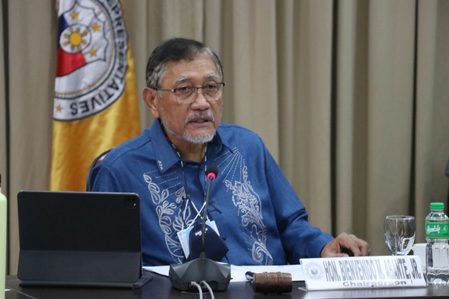

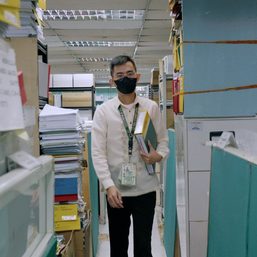




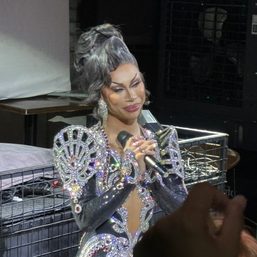
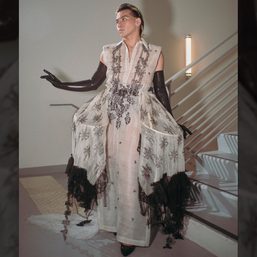
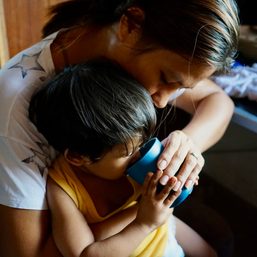
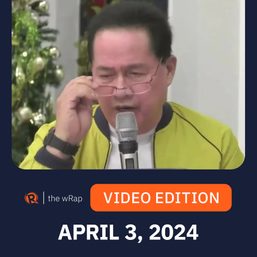

![[Rappler Investigates] Dangers of TikTok](https://www.rappler.com/tachyon/2024/04/dangers-tiktok-april-18-2024.jpg?resize=257%2C257&crop=309px%2C0px%2C1080px%2C1080px)

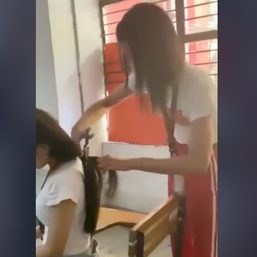
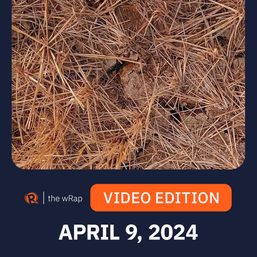
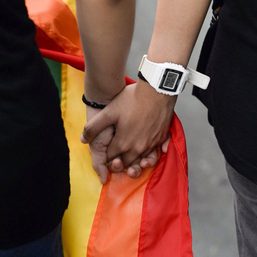
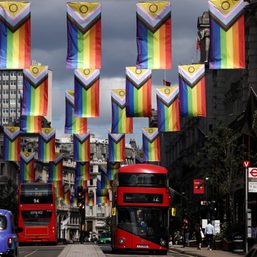
![[Dash of SAS] Pride, rainbow capitalism, and the resistance](https://www.rappler.com/tachyon/2023/07/Pride-and-Rainbow-Capitalism.jpg?resize=257%2C257&crop=300px%2C0px%2C720px%2C720px)

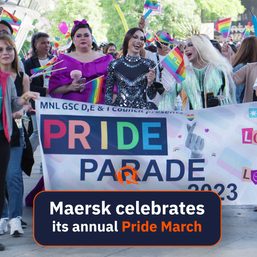

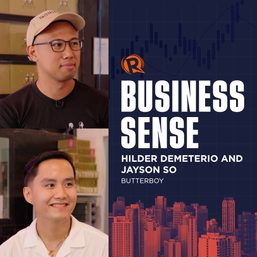

![[OPINION] Review the harsh, archaic laws that put women, LGBTQ behind bars](https://www.rappler.com/tachyon/2023/12/sogie-gender-harsh-laws-december-22-2023.jpg?resize=257%2C257&crop=441px%2C0px%2C1080px%2C1080px)
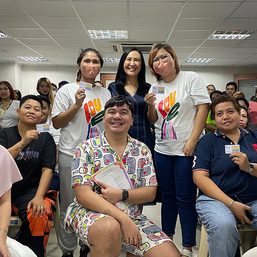
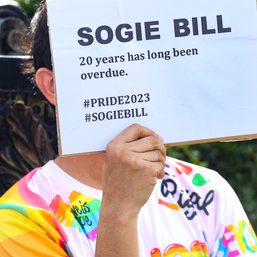
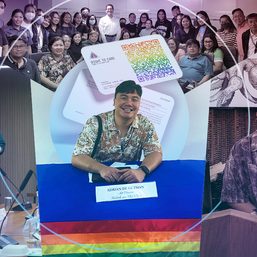
There are no comments yet. Add your comment to start the conversation.